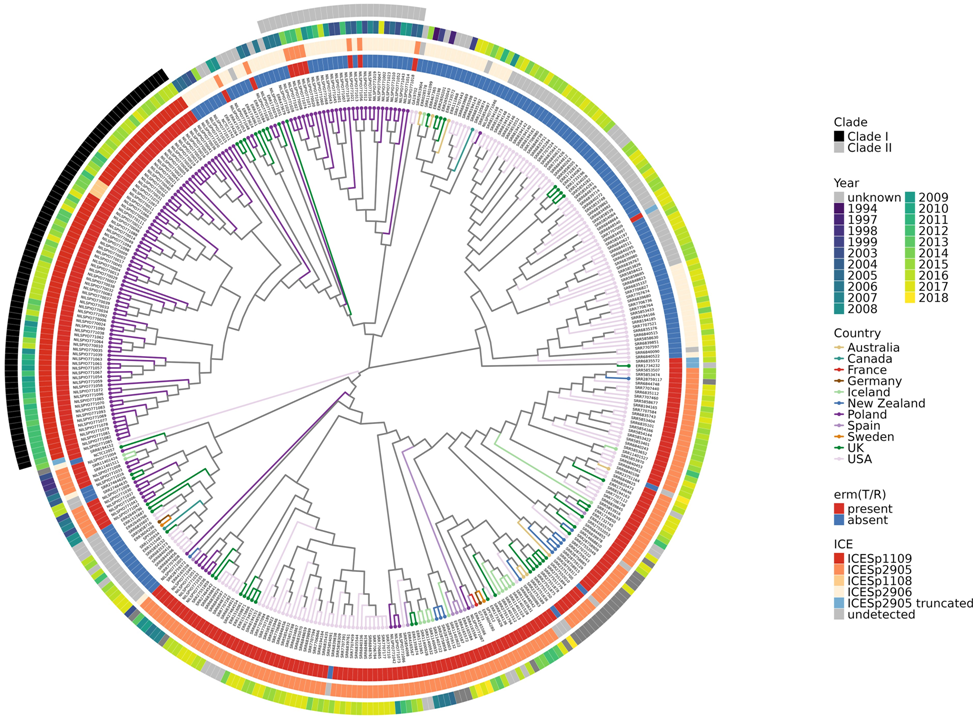Investigating antibiotics resistance of Streptococcus pyogenes
Scientists from IBB PAS (DNA Sequencing and Synthesis Facility and Laboratory of Bacterial Drug Resistance) have studied Polish samples of antibiotic-resistant isolates of the bacterium Streptococcus pyogenes, a specialized human pathogen which is among the top 10 causes of death from infectious diseases. In this study they describe detection of a novel hybrid Integrative-Conjugative Element, which carries genes that confer resistance to tetracycline and macrolide antibiotics, such as erythromycin, used to treat complicated S. pyogenes infections. Genomes of the S. pyogenes isolates were sequenced and the results of data analysis suggest that during a 15-year period (2003-2017), spreading of antibiotic-resistant clones took place. This research provides the previously missing epidemiologic and genomic data on S. pyogenes unique to Central Europe and underscores the importance of continuous surveillance and monitoring of antibiotic-resistant S. pyogenes, as highlighted by the World Health Organization in 2024.
The research was done in collaboration with the National Medicines Institute in Warsaw and the Houston Methodist Research Institute and Houston Methodist Hospital, United States.
The full version of the manuscript “ICESp1109, a Novel Hybrid Integrative Conjugative Element of Macrolide-Resistant Streptococcus pyogenes Serotype M77 Collected Between 2003 and 2017 in Poland”, published in the Journal of Infectious Diseases, is available here: https://doi.org/10.1093/infdis/jiae473

Photo of S.pyogenes on main page: courtesy of the National Institute of Allergy and Infectious Diseases.


